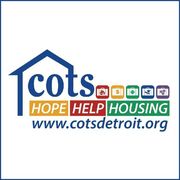
Homelessness is a widespread problem in the U.S., but people often misunderstand how it happens. Perhaps the biggest misconception is that homeless families and individuals don’t have homes because of their personal choices and actions. However, not all circumstances that lead to homelessness are within a person’s immediate control.
What Are Some Common Reasons People Become Homeless?
1. Poverty
People can have jobs and still experience homelessness due to poverty. Some cities don’t have many employment opportunities that allow workers to take care of their homes and other financial obligations, such as health care, groceries, and education. In some cases, people will have to choose between housing and food when they receive their paychecks, often resulting in evictions and hunger. With a low-paying job, the line between having a home and experiencing homelessness is thin, especially if people don’t have strong support systems to help them.
2. Lack of Affordable Housing

Every home should be safe, priced reasonably, and include basic amenities, such as access to clean water. Unfortunately, this isn't always the case. People often spend more than 30% of their income on rent. Though rental costs rise steadily, wages tend to stay the same. As a result, more families and individuals can no longer afford their homes.
3. Domestic Violence
About 90% of women who are homeless in America experienced some form of abuse at home. Instead of enduring additional trauma, male and female survivors of abuse often choose to leave. They may have a new place to go or escape their homes with nothing, resulting in homelessness.
COTS in Detroit, MI, is non-profit community organization that helps homeless families and individuals break away from poverty. The organization helps people reach their educational, financial, and health goals to improve their overall well-being, including offering resources for temporary or affordable housing for those in need. To learn more about how to donate to homeless families in your community, visit them online or call (313) 831-3777 today.
About the Business
Have a question? Ask the experts!
Send your question

